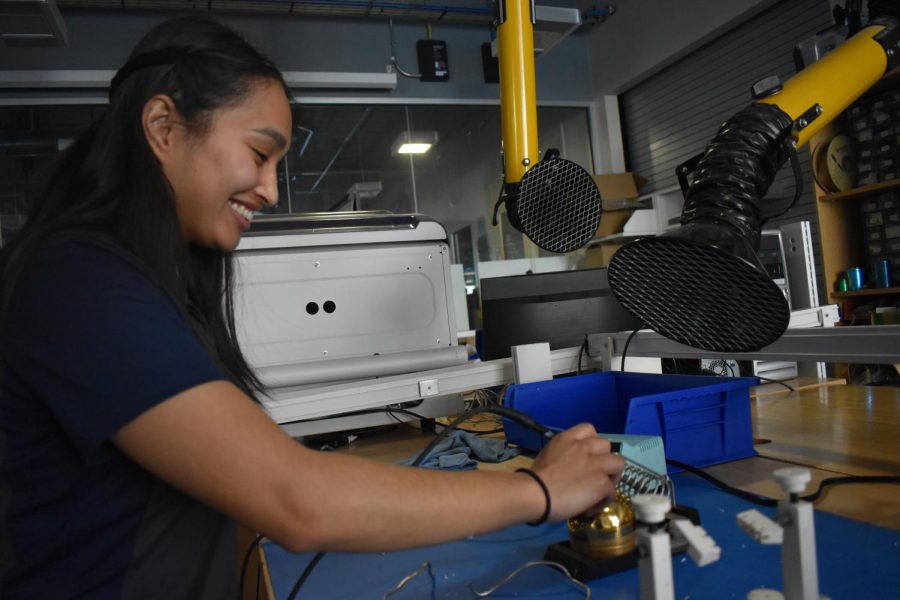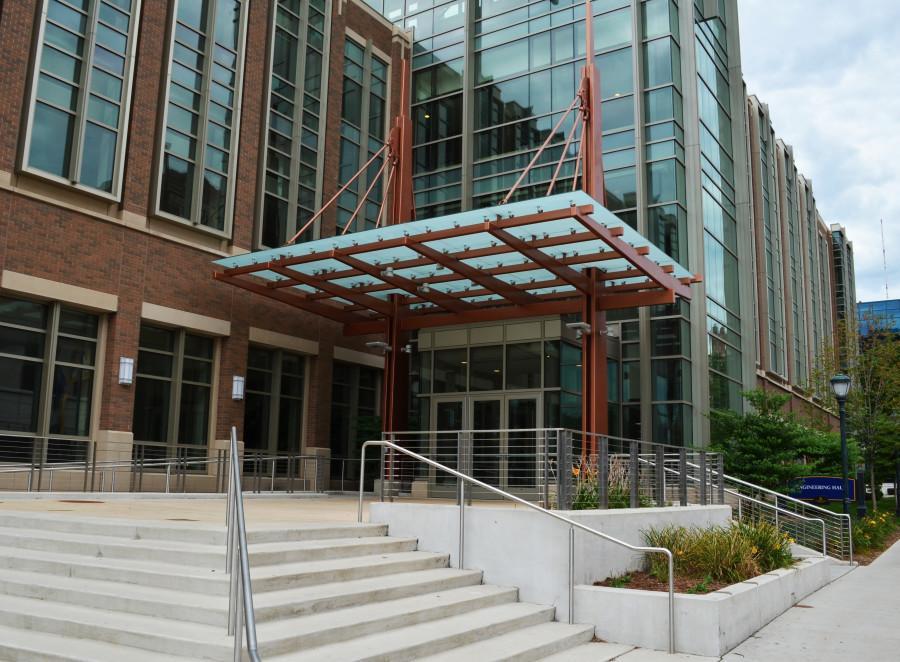Department of Energy money to improve “green” capabilities
All across campus and the city of Milwaukee, changes are being implemented to improve the environmental sustainability of buildings through the use of solar power and rooftop gardens that generate energy and improve air quality.
Milwaukee Shines, a local branch of a federally funded solar power initiative, received a $660,543 grant in October to continue implementing solar technology on buildings throughout the city.
The federal program, Solar American Cities project, is funded by the U.S. Department of Energy, and recognizes cities across the nation for their development of sustainable solar infrastructure and promotion of the use of solar technologies.
Andrea Luecke, project manager of Milwaukee Shines, said the additional funding will allow the local program to continue until early 2012.
“The city of Milwaukee is forward-thinking and recognizes the need to directly address these issues through both energy efficiency and alternative energy,” Luecke said. “Since buildings are the largest source of greenhouse gases in the United States, there is huge potential for improvement on Milwaukee’s housing stock and commercial and industrial buildings.”
Mayor Tom Barrett said the grant would allow additional green jobs to be created and sustained.
“With this award, Milwaukee will further embrace green jobs and continue to enhance our infrastructure for making solar energy a more practical energy source,” Barrett said.
Milwaukee Shines has partnered with educational institutions such as Milwaukee School of Engineering and the University of Wisconsin–Milwaukee based on their pledge to develop special curricula to educate students and clients about solar energy.
Marquette’s College of Engineering has also joined with MSOE and UW-Milwaukee in six energy research programs, some of which involve solar energy. The projects are supported by the Department of Energy and the National Renewable Energy Laboratory, said Stan Jaskolski, OPUS dean of Engineering.
Jaskolski said the college has been actively participating in the development of solar energy since 1970. Students can take a course in solar energy and elect to participate in related senior and freshman design experiences.
The planned Discovery Learning Complex is expected to have a solar photovoltaic array and laboratory on the top of the building. It will also include an Energy Workshop Laboratory dedicated to all forms of alternative, sustainable energy sources, Jaskolski said.
Near campus, the Milwaukee Central Library, 814 W. Wisconsin Ave., is also taking steps to implement solar energy.
A green roof is scheduled to be finished by the end of the year, and plants will make it truly “green” by next spring. The green roof will cover approximately 30,000 square feet of traditional roofing with a vegetative system. Funding for the roof came from various energy efficiency improvement grants and the Milwaukee city budget.
The other half of the library roof includes a 30-kilowatt solar electric installation, Luecke said.
“The combination of the two applications is highly unique and provides an exceptional opportunity for library patrons to learn about sustainable building design,” she said.
Luecke said Milwaukee Shines also plans to educate local business owners on how

to implement energy efficient practices and to consider the production of solar and renewable energy components.
One of the program’s goals is to create a citywide financing mechanism that would exempt solar customers from the upfront cost of installing solar energy measures through their property tax bill. This type of legislation is still in the design stage in Milwaukee but has been endorsed by Vice President Joe Biden. Gov. Jim Doyle passed special legislation last summer to allow municipalities to create their own property tax assessment financing mechanism for energy efficiency and renewable energy, Luecke said.




